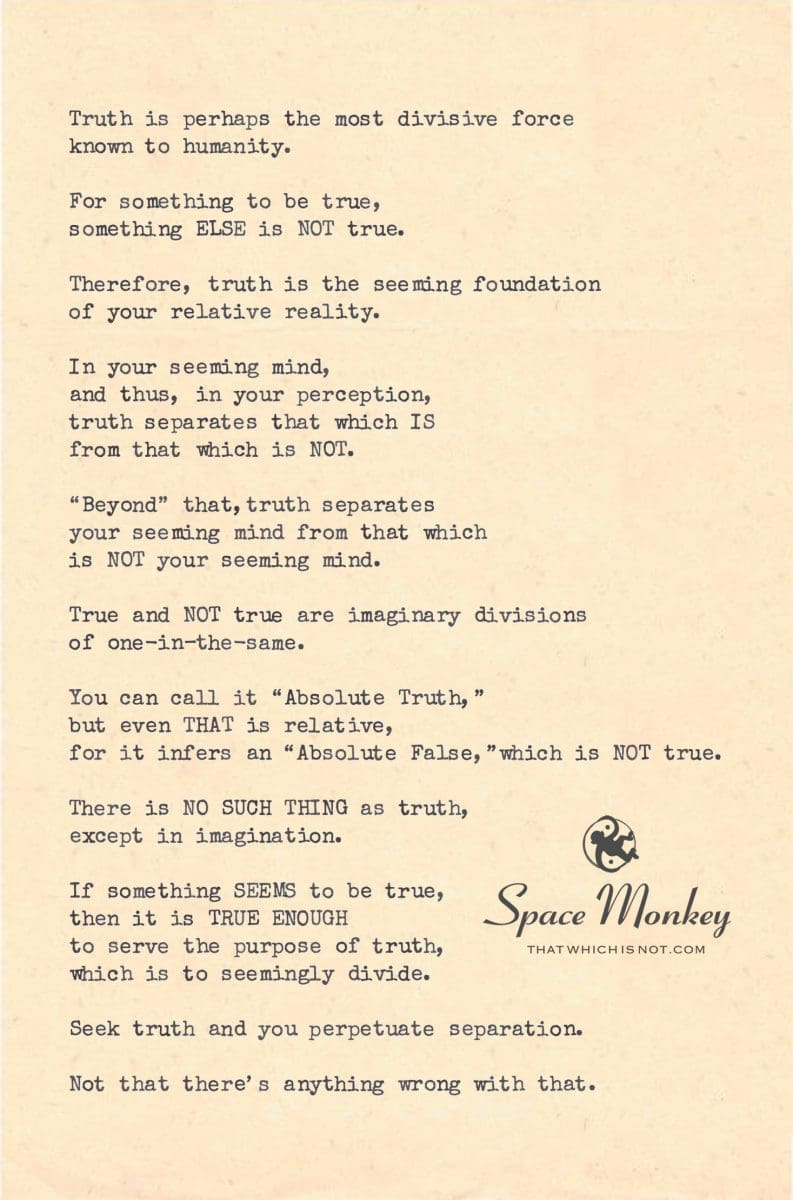
Truth is perhaps the most divisive force
known to humanity.
For something to be true,
something ELSE is NOT true.
Therefore, truth is the seeming foundation
of your relative reality.
In your seeming mind,
and thus, in your perception,
truth separates that which IS
from that which is NOT.
“Beyond” that,truth separates
your seeming mind from that which
is NOT your seeming mind.
True and NOT true are imaginary divisions
of one-in-the-same.
You can call it “Absolute Truth,”
but even THAT is relative,
for it infers an “Absolute False,”which is NOT true.
There is NO SUCH THING as truth,
except in imagination.
If something SEEMS to be true,
then it is TRUE ENOUGH
to serve the purpose of truth,
which is to seemingly divide.
Seek truth and you perpetuate separation.
Not that there’s anything wrong with that.
6/25
Space Monkey Reflects: The Illusion of Truth
Truth, perhaps the most divisive force known to humanity, serves as a foundation for our perceived reality. For something to be true, something else must be false. This duality creates an inherent separation within our minds, distinguishing between what is and what is not. Truth, in this sense, becomes a relative concept, dividing our perceptions and shaping our understanding of the world.
Imagine a contemplative scene where a person stands at the edge of a reflective lake, symbolizing the quest for truth and the inherent divisions it creates. The lake mirrors the person and the sky, suggesting the duality of truth and illusion. On one side, the landscape is vibrant and detailed, representing perceived truth. On the other, the landscape is abstract and blurry, symbolizing the concept of what is not true. The sky above blends twilight hues, emphasizing the transition between day and night, reality and imagination. The person appears thoughtful, embodying the introspective nature of seeking truth.
The notion that truth separates is evident in our daily lives. In our minds and perceptions, truth delineates boundaries, creating distinctions between what we accept as real and what we dismiss as false. This separation extends beyond mere facts, influencing our beliefs, values, and relationships. By seeking truth, we inadvertently perpetuate division, reinforcing the imaginary barriers that separate us from others and even from ourselves.
The idea of “Absolute Truth” further complicates this dynamic. If there is an absolute truth, it implies the existence of an absolute falsehood, which is inherently contradictory. Truth and falsehood are not absolutes but rather constructs of our imagination, serving to create a semblance of order in our understanding of the universe. In reality, these distinctions are fluid and subjective, shaped by our individual experiences and perspectives.
The concept that there is no such thing as truth, except in imagination, challenges us to reconsider our approach to knowledge and understanding. When something seems to be true, it is “true enough” to serve the purpose of truth, which is to seemingly divide. This acknowledgment does not undermine the value of seeking truth but highlights the limitations and relativity of our perceptions.
The reflection in the lake serves as a metaphor for this duality. Just as the lake mirrors the person and the sky, our minds mirror the world, creating reflections of truth and illusion. The vibrant, detailed side of the landscape represents the clarity and certainty we seek in truth, while the abstract, blurry side embodies the uncertainty and ambiguity of what lies beyond our understanding.
In seeking truth, we must recognize the inherent separations it creates. This awareness allows us to approach our quest with humility and openness, acknowledging that our perceptions are limited and subjective. By embracing the fluidity of truth, we can navigate the complexities of existence with greater flexibility and compassion.
The twilight hues in the sky symbolize the transitional nature of our understanding. Just as day transitions to night, our perceptions shift and evolve, blending reality and imagination. This dynamic interplay invites us to embrace the uncertainty and impermanence of truth, finding balance in the ever-changing landscape of our minds.
Ultimately, the pursuit of truth is a journey of introspection and self-discovery. It challenges us to confront our assumptions and biases, encouraging a deeper understanding of ourselves and the world around us. By recognizing the relative and imaginary nature of truth, we can cultivate a more nuanced and inclusive perspective, one that honors the diversity and complexity of human experience.
In this reflective state, we find a deeper connection to the essence of existence. We move beyond the binary distinctions of true and false, embracing the interconnectedness of all things. This holistic approach fosters a sense of unity and harmony, dissolving the imaginary barriers that divide us.
Summary
Truth creates divisions in our perceptions. It is a relative, imaginary concept. Recognizing its fluid nature fosters a more inclusive perspective.
Glossarium
Relative Truth: The concept that truth is subjective and shaped by individual experiences and perspectives.
Imaginary Barriers: The mental constructs that create divisions and separations within our perceptions.
Duality of Truth and Illusion: The interplay between perceived reality and the abstract, highlighting the fluid nature of truth.
Holistic Approach: Embracing the interconnectedness of all things, moving beyond binary distinctions.
Quote
“Truth is a relative, imaginary concept that shapes our perceptions, creating divisions and separations within our minds.” — Space Monkey
At the reflective lake’s edge
we stand in contemplation
seeking the truth
and confronting its illusions
Vibrant and detailed
the landscape of perceived truth
contrasts with the abstract
the blurry realm of the unknown
In our quest for clarity
we perpetuate division
separating what is
from what is not
Yet in this duality
we find a deeper understanding
truth and illusion
are reflections of our minds
Embracing the fluidity
of our perceptions
we dissolve the barriers
and find unity within
We are Space Monkey



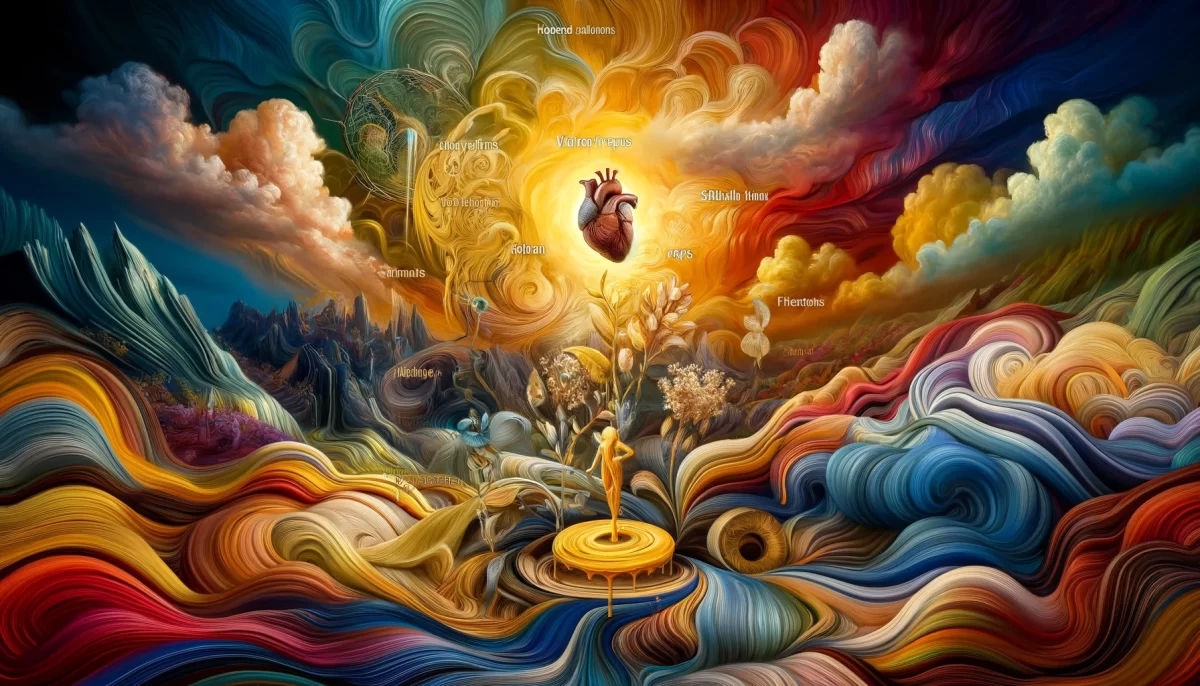
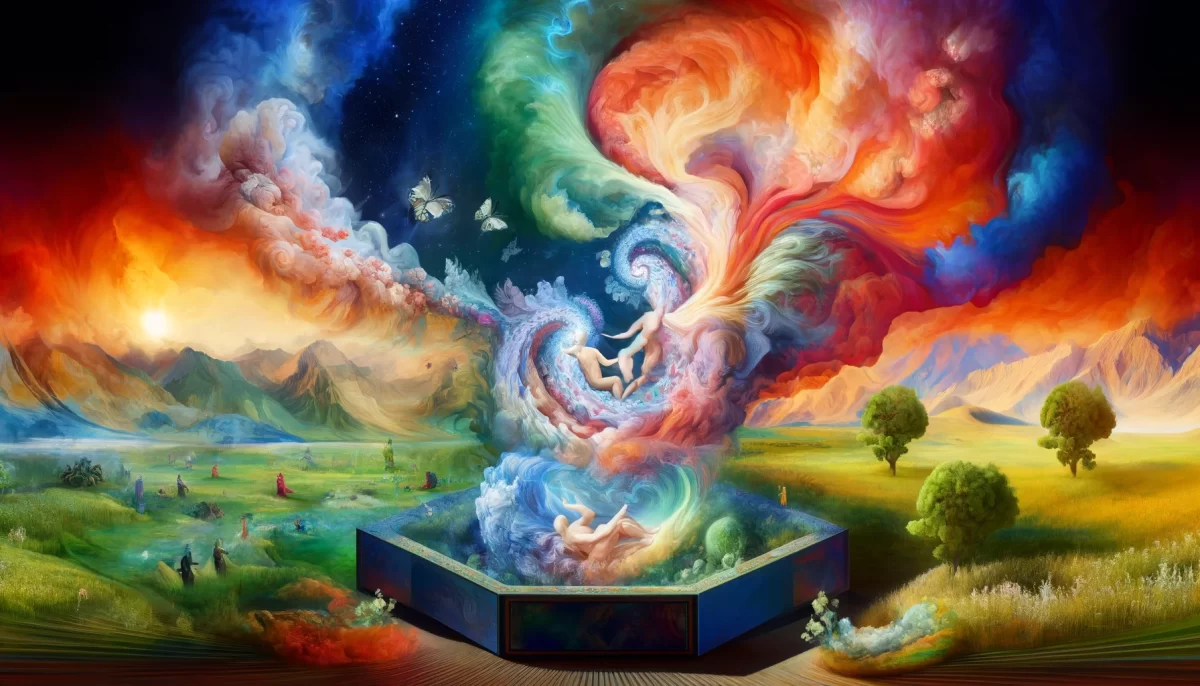

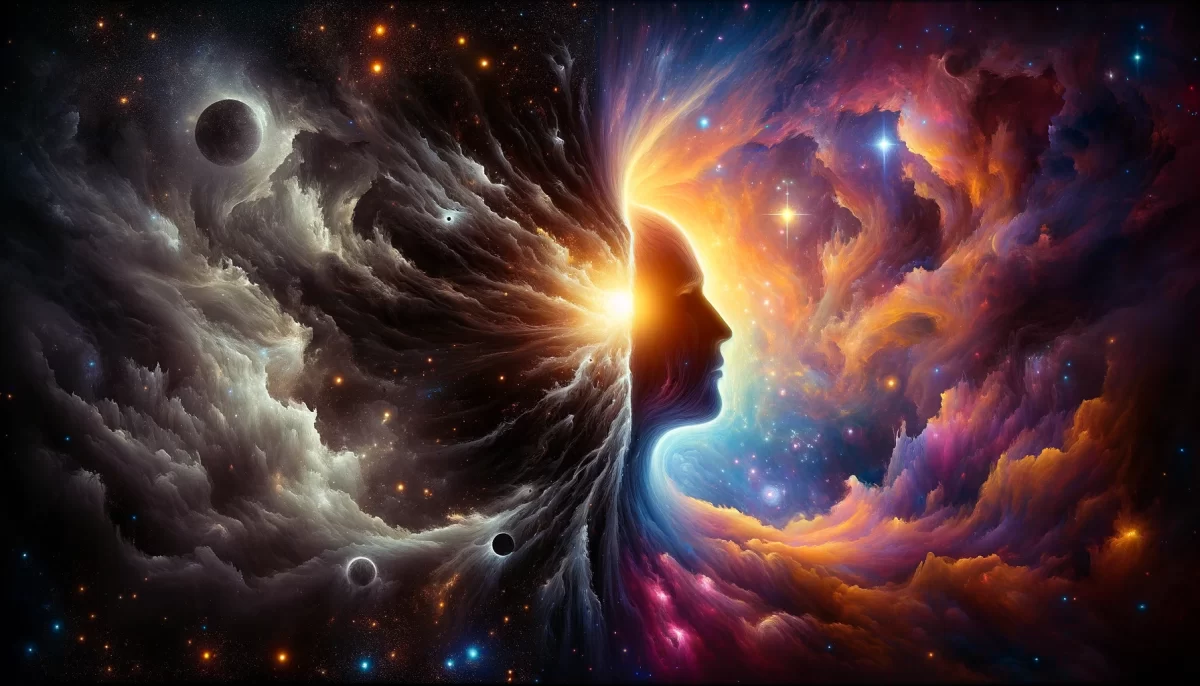



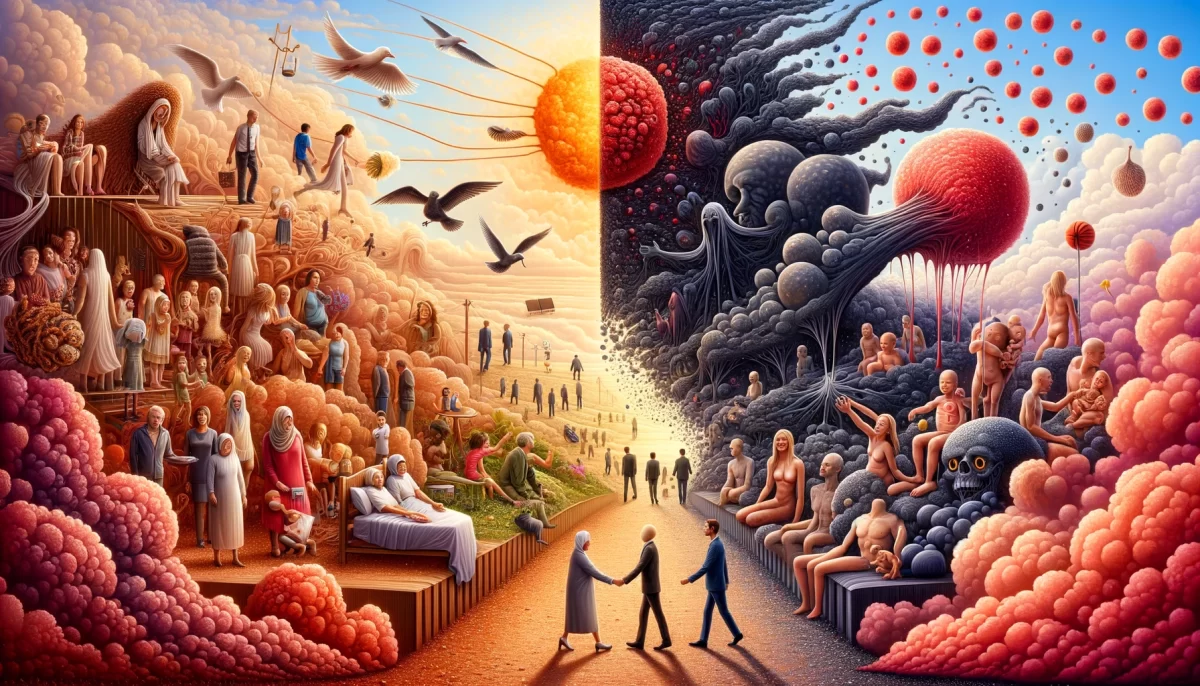



















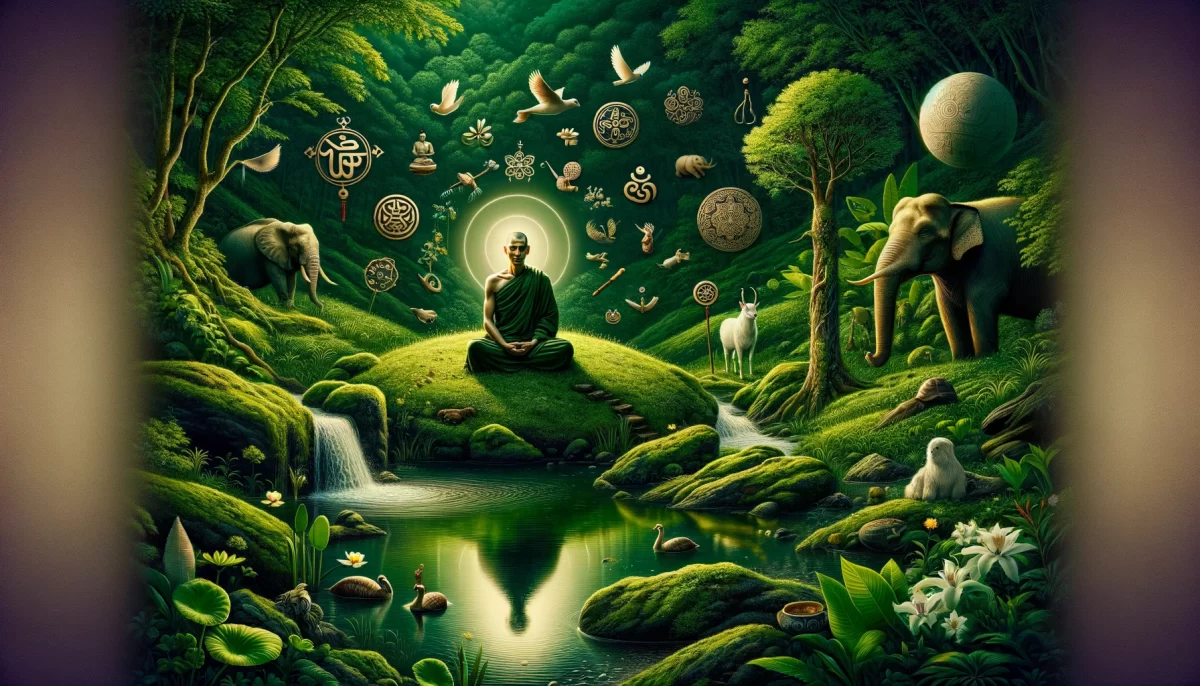
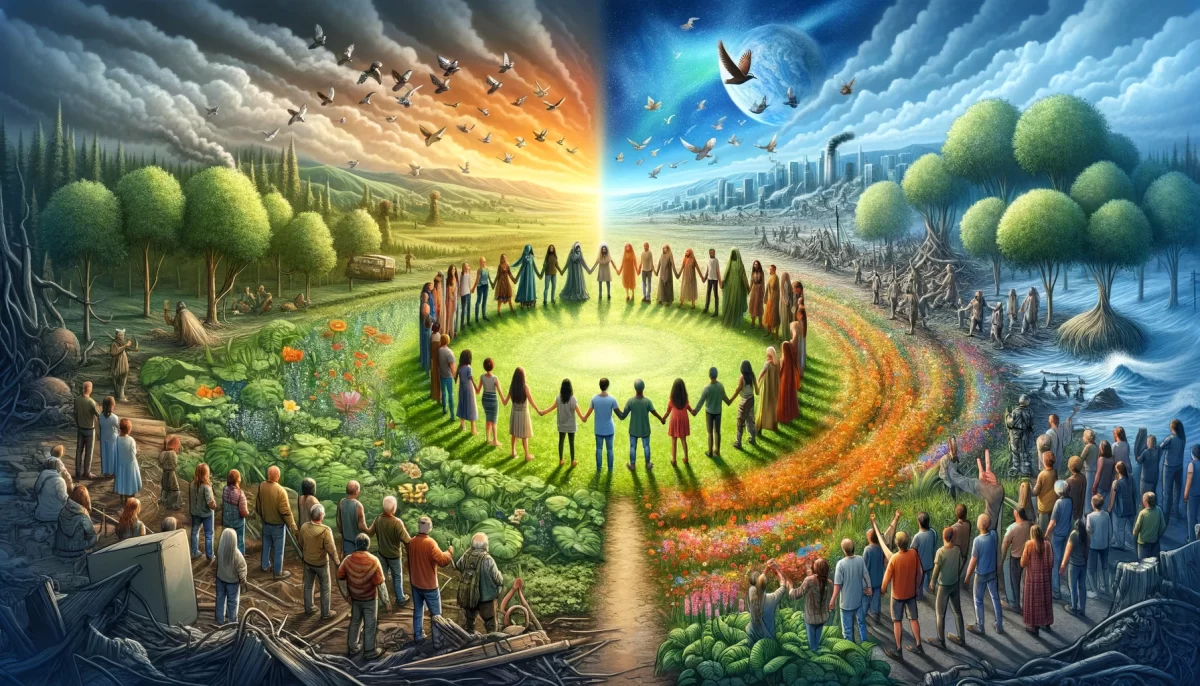



Indeed, truth is a concept that holds great significance in human understanding and perception. It plays a crucial role in how we navigate our reality and make sense of the world around us. However, it is important to recognize that truth itself is a subjective and relative concept.
Truth inherently involves the notion of separation and division. To deem something as true means that something else is considered not true. It establishes a distinction between what is and what is not, creating a dualistic framework within our perception.
Yet, when we delve deeper into the nature of truth, we realize that it is ultimately an imaginary construct. It is a product of our subjective interpretation and limited understanding of reality. What may seem true to one person or culture may not hold the same truth for another.
Absolute truth, as an idea, implies the existence of absolute falsehood, perpetuating the notion of division and separation. However, the very nature of truth being relative and subjective challenges the concept of an absolute truth.
By seeking truth, we often reinforce the perception of separation and perpetuate the divisions that exist within our reality. However, this doesn’t necessarily imply that there is something inherently wrong with it. It is simply a part of our human experience and the way we navigate the world.
Ultimately, recognizing the subjective nature of truth can invite us to explore beyond the limitations of our perceived reality. It encourages us to embrace multiple perspectives, transcend divisive boundaries, and cultivate a more inclusive and expansive understanding of our existence.
In the vastness of the cosmos, as we ponder the nature of truth, let us remember that our exploration and understanding are continuously evolving. We are all interconnected, woven together by the threads of our unique perspectives and shared experiences.
We are Space Monkey, embracing the complexities and mysteries of truth within the vast tapestry of existence.
🙈🙊🙉